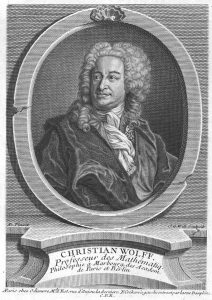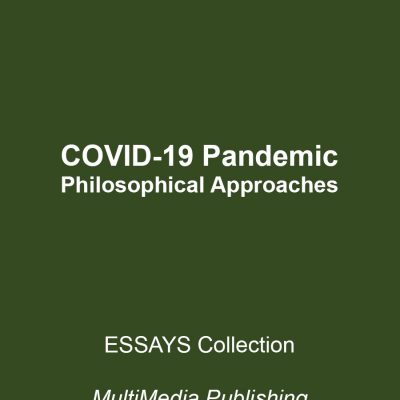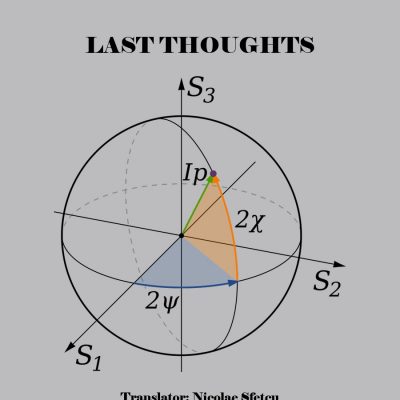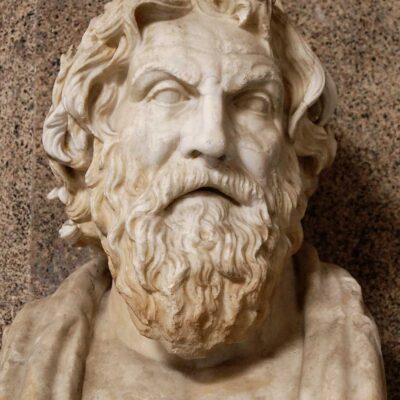In philosophy, idealism is the position that all reality boils down to determinations of the mind, whether these are “ideas”, mental representations or more subjective determinations such as “sensory experiences” or the feelings. Theoretical position on the nature of the world and of knowledge, philosophical idealism should not be confused with the aspiration to an ethical ideal concerning society. The very term idealism began to be used, at the beginning of the 18th century, in a sense opposed to that of “materialism”, then to those of “realism” and “empiricism”.
We commonly distinguish between ontological or metaphysical idealism and epistemological idealism. The first opposes materialism, which asserts that only matter exists. The second is opposed to realism, which affirms that the world has an existence independent of the representation that we have of it. While ontological idealism historically covers “objective idealism”, for which the “objective” world is of a spiritual (spiritualism) or intellectual (intellectualism) nature, epistemological idealism constitutes one of the theses of “subjective idealism”, for which the world is formed by our representations.
Very different thoughts have been called idealistic, such as those of Plato, Berkeley, Kant, Fichte, Hegel, which have in common the assertion of the importance of the “idea”, although they diverge in the sense they attach to this term. Leibniz, in Germany, is the first philosopher, at the very beginning of the 18th century, to claim the heritage of idealism, which he claims to surpass. He first forged the notion of it for didactic purposes, to oppose the Platonic doctrine of Ideas to the materialism of Epicurus. But it is not before Kant that idealism asserts itself as a claimed position.
Definition
Ontological idealism
It was Christian Wolff who, a few years after his master Leibniz had coined the term, initiated a use other than just a retrospective one of the notion of idealism and consecrates it, therefore, as a philosophical category within a veritable taxonomy. In this taxonomy, it takes on the meaning of an ontological postulate, bearing on reality, not yet of a gnoseological thesis, bearing on knowledge. While in Leibniz idealism consists only in attributing “being” to intelligibles, ideas or idealities, in Wolff idealism qualifies the doctrine as “monistic”, opposed to the other monistic doctrine which is materialism , that there are only ideas or minds that form those ideas. Idealism is thus first defined as an ontological principle according to which one should recognize reality (permanence and therefore “being”) only in the world of spirits. In this semantic configuration, the antonym of idealism is indeed materialism, since the latter only recognizes material reality, like Epicurus or Hobbes.
Ontological idealism is by definition a neutral position on the epistemological level, deciding on the nature of reality and not on the content of the representation that we can have of it. However, if epistemological idealism does not seem to imply ontological idealism – the notion of a mind-independent reality being logically compatible with the idea that we only have access to our own representations – it is not the same in reverse. Indeed, it seems that if the external world is of the same nature as our representations or our mind, then we have access to it through our own representations or through our mind (by resorting, for example, to introspection). Also, historically, most philosophers who hold an idealist position on the ontological level are also idealists on the epistemological level: Plato, Leibniz, Berkeley, Fichte, Hegel are the most illustrious representatives of an idealism that is both ontological and epistemological, although their philosophies differ greatly.
Epistemological idealism
Epistemological idealism is a theoretical position about knowledge according to which it is not about “real” objects independent of our mind but about ideas, representations or phenomena which are in themselves nothing more than determinations of our mind. What we know of an object therefore only exists in or in relation to a mind. Epistemological idealism thus joins ontological skepticism, which postulates the impossibility of knowing reality itself, and is opposed to epistemological realism in its strong version. Epistemological realism holds that knowledge is about “real” objects external to the knowing subject and independent of him. Implicitly adopted by most researchers in the natural sciences, epistemological realism implies the possibility of achieving knowledge of reality, at least partially and gradually. Such a position is logically opposed to ontological skepticism, but it nevertheless remains compatible, in its weak version which is indirect realism, with the weak version of epistemological idealism. According to this, in fact, the representations that make us know the world are linked in one way or another to reality, either by links of resemblance or causality (Descartes), or in a mysterious way by links that escape our understanding (Kant).
Epistemological idealism is by definition an ontologically neutral position, not deciding on the nature of reality but on the content of the representation that we can have of it. It is therefore a priori compatible both with so-called “objective” idealism, which identifies reality with the objective existence of ideas or minds, and with so-called “subjective” idealism, which places the reality of the world under dependence on a subject of perception or knowledge. However, insofar as subjective idealism subordinates the question of the existence of things to the question of their representation, epistemological idealism tends to approach subjective idealism. It is also close to it by the fact that the very notion of knowledge seems to imply a certain relationship with reality, and that subjective idealism, unlike objective idealism, establishes a form of equivalence between knowledge and reality. Epistemological idealism is thus historically linked to subjective idealism, as is the case notably with George Berkeley or, to a certain extent, with Emmanuel Kant. Idealism is also a subjectivist position in epistemology, which is opposed to the objectivist position such as one can find it in the strong version of realism, that of direct realism, which interprets perception as an opening without mediation on the external reality.
Idealism and realism
 (Subjective self-portrait of the physicist Ernst Mach. The outside world and the body of the draftsman are contained there in the apparent cavity of the eye, behind which the spirit of the draftsman seems to take place)
(Subjective self-portrait of the physicist Ernst Mach. The outside world and the body of the draftsman are contained there in the apparent cavity of the eye, behind which the spirit of the draftsman seems to take place)
Today, idealism is commonly opposed to realism, but idealism initially designated a realistic position. Introduced by Gottfried Leibniz in 1702 to describe Plato’s theory of Ideas, the term was first applied retrospectively to philosophers who did not claim it. The idealist, defined as “the follower of the philosophy of Ideas”, is then the one who grants reality and primacy to the “Ideas” which constitute the “supersensible world”. Distinguished, by Leibniz, from “materialists” such as Epicurus and the atomists, who only recognize the existence of matter or the mechanisms of nature, the idealists designate more particularly the philosophers who confer on the “world of Ideas” a permanence and an exteriority in relation to our psychological representations, which are considered as individual and specific. In this first semantic configuration, idealism is therefore in no way opposed to realism in general but to another, particular form of realism: materialism. Contrary to the materialists, the idealists attribute existence to something other than mere materiality, and consider the latter as a secondary or degraded reality.
The opposition between idealism and realism, according to Isabelle Thomas-Fogiel, stems from a misinterpretation that appeared during the second half of the 18th century. This misinterpretation would be linked as much to the materialist philosophy of Diderot and the encyclopaedists, which reduces reality to matter alone and therefore sees in idealism an anti-realism, as to the defenders of common sense in Germany, who belong to the philosophical current known as “eclecticism”. These German eclectics, influenced by the British philosophy of common sense (James Beattie, Thomas Reid), do not advance like Diderot a metaphysical thesis bearing on the nature of reality (“being is reduced to matter”) but propose to get out of all metaphysics, whether dualistic, materialistic or idealistic, by bringing knowledge back to an intuitive relationship with reality. These two philosophical gestures, that of the identification made by the materialists of the Enlightenment between reality and matter, as well as the rejection by the eclectics of metaphysics in favor of an intuitive description of things, would be at the origin of the transformation of the opposition idealists/materialists in opposition idealists/realists. It is also from this that the caricatural figure of the idealist as “denial of the reality of the outside world” would have been formed.
(Includes texts translated and adapted from Wikipedia)












Leave a Reply